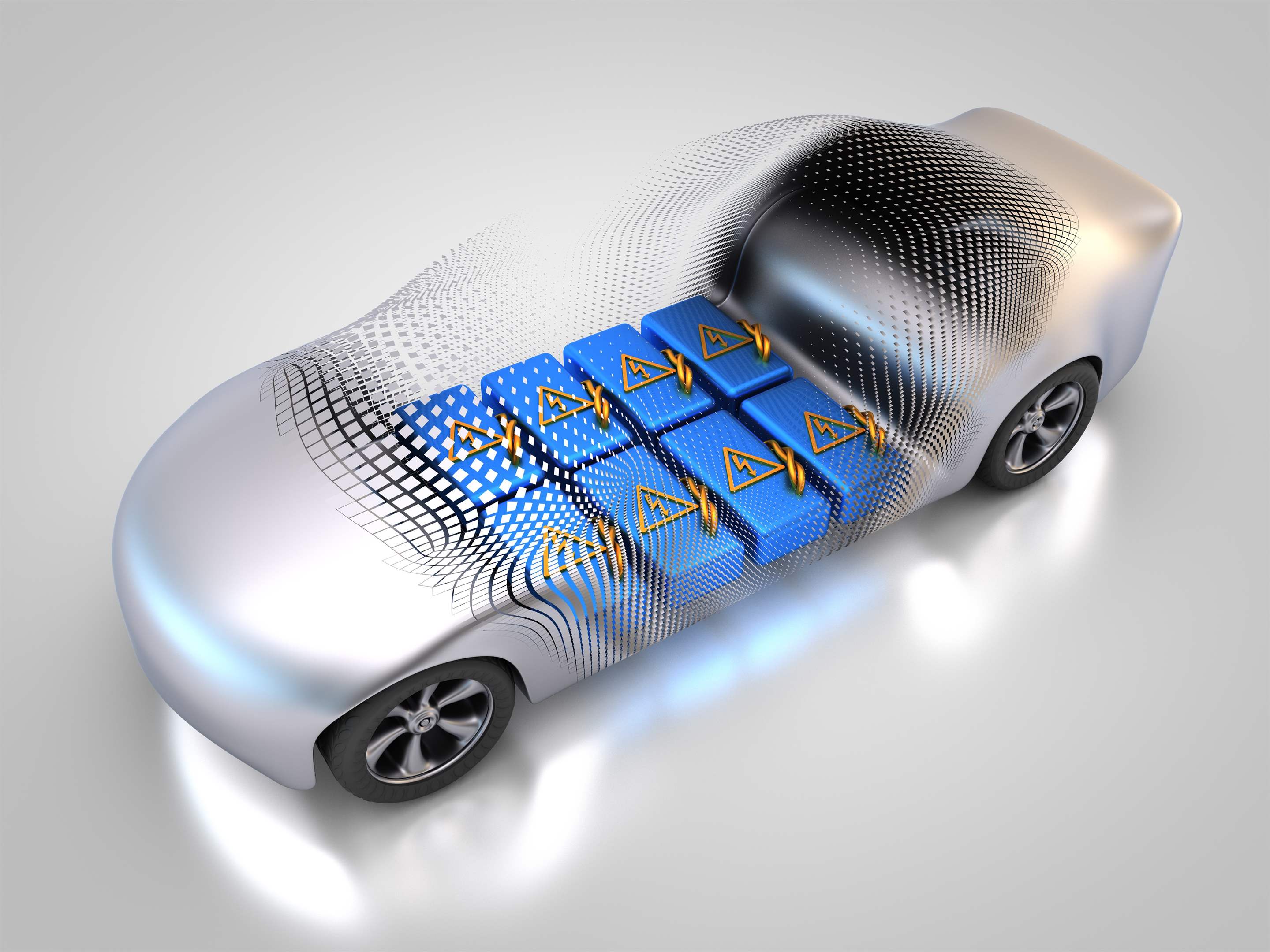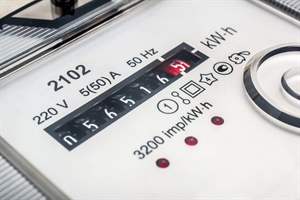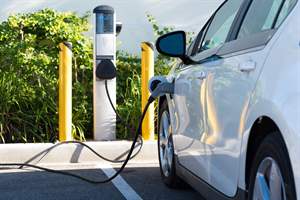Research Spotlight
 Offline
OfflineMichael Fowler, Manoj Mathew, Q.H. Kong, Jake McGrory
 Even rechargeable batteries eventually die. Month after month of using a battery, topping it up and repeating the cycle gradually reduces its ability to hold a charge and the amount power it can supply. That’s why electric vehicle (EV) manufacturers suggest replacing the battery pack when its storage capacity drops below 80 per cent of maximum, and have 8 year warranties.
Even rechargeable batteries eventually die. Month after month of using a battery, topping it up and repeating the cycle gradually reduces its ability to hold a charge and the amount power it can supply. That’s why electric vehicle (EV) manufacturers suggest replacing the battery pack when its storage capacity drops below 80 per cent of maximum, and have 8 year warranties.
WISE researchers envisioned a different approach. A battery is only as strong as its weakest cells, propose researchers in…
Anindya Sen
 Mention hydro bills at any Tim Hortons in Ontario and you’re sure to set off a chorus of grumbling. Electricity rates in the province have skyrocketed in recent years. Today, they’re among the highest in Canada.
Mention hydro bills at any Tim Hortons in Ontario and you’re sure to set off a chorus of grumbling. Electricity rates in the province have skyrocketed in recent years. Today, they’re among the highest in Canada.
According to WISE researcher Anindya Sen, that’s due in part to the province’s High-5 program. Introduced in 2011, it provides incentives for large industries to reduce electricity consumption during the highest demand hours of the year.
Trimming peak consumption avoids the need to…
Yassir Alhazmi & Magdy Salama
 There’s no question: electric vehicles are a greener choice than their gas-powered counterparts, producing less air pollution and greenhouse gases. But a major barrier to their adoption is limited battery range. If drivers want to use electric vehicles for anything more than short commutes or errands around town, they need a network of fast-charging stations.
There’s no question: electric vehicles are a greener choice than their gas-powered counterparts, producing less air pollution and greenhouse gases. But a major barrier to their adoption is limited battery range. If drivers want to use electric vehicles for anything more than short commutes or errands around town, they need a network of fast-charging stations.
So how do we go about building an effective one? Over the past few years, WISE researchers Yassir Alhazmi and Magdy Salama examined that…
Research Spotlight: Helping Households Save Power
Ian Rowlands & Paul Parker
 Around the world, governments, utility companies and environmental organizations alike are encouraging consumers to use electricity more wisely. And with good reason. Reducing electricity consumption or shifting it to off-peak hours can cut greenhouse gas emissions, postpone the need for new generating stations and reduce the pressure on electricity grids.
Around the world, governments, utility companies and environmental organizations alike are encouraging consumers to use electricity more wisely. And with good reason. Reducing electricity consumption or shifting it to off-peak hours can cut greenhouse gas emissions, postpone the need for new generating stations and reduce the pressure on electricity grids.
What exactly does that look like at the household level? Three WISE researchers decided to find out.
Ian Rowlands, Paul Parker and Ivan…
Research Spotlight: Optimizing Power Flow
Bissan Ghaddar
 The better you can optimize the flow of electricity in a power grid, the more energy you save and the fewer planet-warming greenhouse gases you generate. But that’s easier said than done.
The better you can optimize the flow of electricity in a power grid, the more energy you save and the fewer planet-warming greenhouse gases you generate. But that’s easier said than done.
Supply and demand fluctuate month by month, day by day and hour by hour. On top of that, there are a host of constraints to take into account. To date, no one has come up with an algorithm that can consistently find the optimal answer in every situation — at least, not in a reasonable length of time. Instead,…
 Offline
OfflineMagdy Salama
From steam engines to spaceships, humans have been using flywheels for centuries. These simple wheels serve as batteries by stockpiling excess energy as mechanical motion, spinning faster the more energy they store.
Now, WISE researchers suggest this tried-and-true technology could give photovoltaic systems a boost, addressing two of the key challenges involved in tapping the sun’s energy.
Challenge number one is that the sun doesn’t always shine when we need energy, creating a mismatch in…
Research Spotlight: A Model for Smart EV Charging
Mehrdad Kazerani & Claudio Cañizares

Although plug-in electric vehicles (EVs) currently make up less than one per cent of vehicles on the world’s roads, that figure is poised to increase significantly as more and more drivers recognize the advantages of going electric.
Mass adoption of EVs would put a big dent in global carbon emissions. However, it also poses challenges for electrical distribution systems. When thousands of commuters within a city arrive at work and plug in their vehicle, the surge in demand could overload…
Research Spotlight:Making Microgrids More Stable
John Simpson-Porco
In an ideal electrical grid, the frequency and voltage stay constant. However, when you have several sources of power, the variations in the amount of power generated create shifts in voltage and frequency.
In a traditional grid where the electricity flows in a single direction from generator to consumer, that’s relatively simple to achieve with a centralized control system of primary and secondary controls.
So-called “droop control” stabilizes voltage and frequency, which is good. However,…
A Critical Look at Resource Criticality Assessments
Komal Habib
Many reputable organizations, including the U.S. Department of Energy, have predicted a shortage of certain rare earth elements (REEs) — a shortage they suggest could endanger direct-drive wind turbines, electric vehicles and other clean energy technologies.
Don’t panic, says Waterloo researcher Komal Habib.
Habib and her Danish colleague Henrik Wenzel reviewed the “resource criticality” assessments that underpin these predictions and found some crucial shortcomings.
Standard resource…
Research Spotlight: A Greener Way to Store More Energy
Microgrids are transforming the way we produce and distribute electricity, enabling communities to generate their own power independently of the main grid. These small-scale systems are well suited for renewables, but daily fluctuations in wind and solar energy make it difficult to guarantee a reliable supply. And although storing excess electricity in batteries can buffer supply and demand, this approach requires high capital cost investment. Professor David Simakov believes chemistry may offer a better and cheaper solution. In his lab at the University of Waterloo’s Sustainable Reaction Engineering Group, Prof. Simakov and his team are developing a highly efficient thermocatalytic converter for microgrids.
The ultimate goal is to develop a power-to-fuel system that will use renewable energy (produced by wind turbines, solar panels etc.) to drive an electrolyzer that will convert water into oxygen and hydrogen. The generated hydrogen will then be fed into the thermocatalytic converter being developed by Prof. Simakov’s team. This highly efficient catalytic unit combines the hydrogen with carbon dioxide from sources such as raw biogas, landfill gas, and flue gas from a power plant, producing…
About this channel
- 250k views
- 114 articles
- 2 followers
Recent Contributors
-
OfflineSana Sadiq
Archives
- October 2011 1
- December 2011 7
- January 2012 3
- February 2012 6
- March 2012 3
- April 2012 3
- May 2012 2
- June 2012 2
- July 2012 1
- September 2012 1
- October 2012 2
- November 2012 1
- December 2012 1
- January 2013 2
- February 2013 1
- March 2013 1
- June 2013 2
- July 2013 1
- September 2013 1
- November 2013 2
- December 2013 1
- February 2014 1
- May 2014 1
- August 2014 1
- April 2015 1
- May 2015 1
- March 2016 1
- April 2016 1
- May 2016 2
- July 2016 1
- August 2016 1
- September 2016 2
- November 2016 1
- December 2016 1
- January 2017 2
- March 2017 1
- April 2017 1
- May 2017 1
- June 2017 1
- July 2017 1
- August 2017 1
- September 2017 1
- October 2017 1
- December 2017 2
- January 2018 1
- March 2018 1
- April 2018 1
- May 2018 1
- June 2018 1
- July 2018 1
- August 2018 1
- September 2018 1
- October 2018 1
- November 2018 1
- December 2018 1
- January 2019 1
- March 2019 1
- May 2019 1
- June 2019 1
- September 2019 1
- October 2019 1
- January 2020 1
- February 2020 1
- March 2020 1
- September 2020 1
- October 2020 1
- November 2020 1
- December 2020 1
- January 2021 1
- March 2021 1
- April 2021 1
- July 2021 1
- January 2022 1
- March 2022 1
- August 2022 1
- September 2022 1
- November 2022 1
- December 2022 1
- January 2023 1
- February 2023 1
- March 2023 1
- June 2023 1
- September 2023 1
- November 2023 1
- January 2024 1
- February 2024 1
- April 2024 1
Page Options

